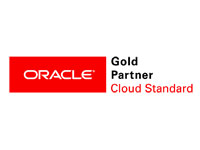HFM vs FCCS
Oracle vs Oracle - HFM or FCCS?
|
Hyperion Financial Management (HFM) and Financial Consolidation and Close Cloud Services (FCCS) are two of the most popular Corporate Performance Management products commercially available today, and both are sold and supported by Oracle. Can one be better than the other? Absolutely. But which one is better for you? HFM and FCCS - Key Similarities
|

|
So why do these products exist separately if they can both do the same thing?
Some people may have heard that FCCS is the next step in the evolution of HFM, or that FCCS is "HFM in the cloud". This is absolutely not the case. While HFM is an "on-premise" tool and FCCS is cloud-based, FCCS and HFM should be considered competing products, each providing different means to the same end.
Key Difference: Customization vs Standardization
HFM is essentially a blank slate. Applications can be highly customized and designed with large or small business operations in mind. Simple or complex business requirements can be accommodated via flexible business rules and hierarchies.
FCCS, while providing some customization, favors those who are willing to adapt to out-of-the-box functionality based upon Oracle's research into "best practices". For example, every FCCS application starts with a pre-defined Chart of Accounts. The thought is that a more "out-of-the-box" structure will require less customization and therefore a faster implementation cycle.
HFM and FCCS - Other Important Differences
-
Underlying Technology
-
HFM is installed on-premise, or hosted by a third party
- Data is stored in a Relational Database
-
HFM is installed on-premise, or hosted by a third party
-
FCCS is hosted on the cloud
- Data is stored in a multi-dimensional Essbase Database, with a relational database front end to manage metadata
-
Custom Dimensions for alternative views of data (Cost Center, Product Line, Geography, etc.)
- HFM has by default 4 custom dimensions, with the ability to add an unlimited number of custom dimensions if necessary
- FCCS provides for a maximum of 4 custom dimensions
-
Data Integration
- HFM uses FDMEE, a separate on-premise product that allows for custom scripting (via SQL, VB, and Jython).
- FCCS includes a scaled-down version of FDMEE called Data management (DM) which is cloud-based but does not allow custom scripting.
- FDMEE can be used with FCCS if purchased separately and installed locally
-
Native data extract format
- HFM can extract data by default as flat (text) files, which contain all dimensions as delimited columns in the file, including the data values. This makes it fairly easy to extract data from HFM for loading into external sources.
- FCCS can extract data as a flat file, in a format designed primarily for import/export between Essbase cubes. Specifically, it is required that a "dense" dimension (by default the Account dimension) be used as the basis for columns. This format can be difficult to load into external sources without using some kind of integration or transfer utility. DM can be utilized to facilitate this transformation, but it is not native to the application and may require end-user access to the DM environment.
-
Workflow/Task Management
- HFM is delivered with rudimentary built-in tools for automation of tasks, such as the execution of data loads, consolidations, and reporting. There is no built-in functionality for facilitating the close process through Workflow. For more robust control over the close process, a separate product "Financial Close Manager" is required
- FCCS is designed as a task-oriented product where workflow is integrated within every application. Financial Close activities such as data processing, validation, and reporting can all be set up and monitored within the application without the need for additional software.
-
Multiple Applications
- HFM allows for multiple environments (e.g., Test, Development, QA, Training, Production, etc..). Each environment can hold multiple applications as needed.
- FCCS allows for 2 instances known as "pods" (Test and Production), each hosting a single application. URLs for additional applications or instances of applications require additional purchase.
-
Pool of Resources
- HFM has been the industry gold standard for almost two decades. There are countless resources, both personal and written, that can help with practically any design or development concern.
- FCCS is the relative newcomer with fewer successful implementations, and therefore fewer resources with the knowledge and experience to implement the product. The offset to this is that the tightly controlled nature of the FCCS design should require fewer resources due to the reduced need for customization.
-
Product Updates
-
HFM - Once HFM has been installed, patches and version updates must be scheduled and often handled carefully by IT personnel.
- Pro: A client has control over the version they prefer and can manage its updates and upgrades based on their schedule.
- Consideration: The timing of updates and upgrades may be driven by Oracle support timelines.
- Consideration: Updating to the latest version may require an incremental patch cycle which requires multiple sequential patches to be applied in a specific order.
-
FCCS - Oracle's future focus is on cloud-based Software as a Service (SAAS). Like all Oracle cloud products, every FCCS environment will receive monthly service updates that provide new functionality
and features automatically. Updates to "test" pods are made early in a month so that a client can test updates against its application. Updates to "prod" pods are made later in the month, presumably after
the client has been able to validate the updates.
- Pro: No interaction by a client's application administrators or IT needed for updates to occur.
- Consideration: Clients should take advantage of the timing between Test (currently scheduled universally on the 1st Friday of each month) and Prod updates (currently scheduled universally on the 3rd Friday of each month) to confirm the updates will not adversely affect an application.
- Consideration: A client can choose to forego updates by specific request, however, these updates cannot be deferred indefinitely.
-
HFM - Once HFM has been installed, patches and version updates must be scheduled and often handled carefully by IT personnel.
- HFM - Oracle has reduced focus on this legacy application in favor of their cloud-hosted products. This does not mean, however, that HFM is no longer supported or developed. A new version (11.2) was released commercially in October 2019 and patches will continue to be made available.
- FCCS -- Oracle's focus as it relates to Corporate Performance Management is on cloud-based Software as a Service (SAAS). Like all Oracle cloud products, FCCS will continue to receive product functionality and feature updates monthly.
- Do you value customization over speed of the implementation?
- Are you willing to make a few design concessions to get your CPM solution up and running quickly?
- Should you customize the solution to meet your business needs, or be flexible in your requirements to adapt to the structured design?
MindStream can help you decide!
Contact MindStream Analytics
Use the form below to reach out to our Oracle EPM experts and discover more about HFM and FCCS.
Partner SpotLight

Oracle
Oracle has the most comprehensive suite of integrated, global business applications that enable organizations to make better decisions, reduce cost..